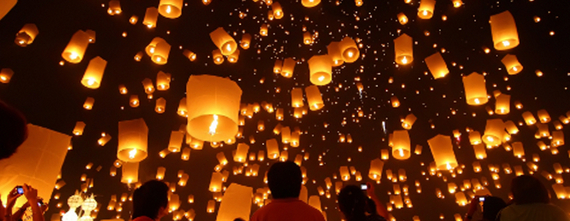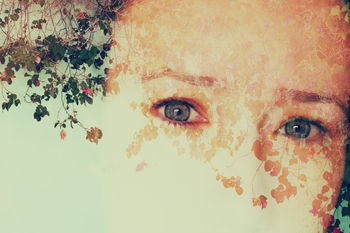 Authored by Molly Merson, MFT for Psyched in San Francisco Magazine. Molly is a relational, psychodynamic psychotherapist in private practice in Berkeley, CA. Molly works with adults and adolescents of all genders in approaching uncomfortable feelings, working through stuck patterns and creating room for joy and desire.
Authored by Molly Merson, MFT for Psyched in San Francisco Magazine. Molly is a relational, psychodynamic psychotherapist in private practice in Berkeley, CA. Molly works with adults and adolescents of all genders in approaching uncomfortable feelings, working through stuck patterns and creating room for joy and desire.
I happened to be reading Mary Shelly's Frankenstein the same year my mother died. I recall being captivated by the novel's meta-story about this man's inability to grieve. Dr. Frankenstein, so unable to mourn his dead mother, resurrected her by piecing together body parts from the nearby cemetery and electrifying them. He created a monster that he, a motherless man, could not mother, and instead abandoned the creature to wander the ice fields alone.
I sometimes feel like the creature, alone and wandering, lost without a mother; and sometimes like Dr. Frankenstein, who tried so hard to deny a feeling he could not feel and a reality he could not accept. In doing so, he created a monster he could not tolerate.
I also have a third feeling, one of resilience and connection, grown from relationships with others whose mothers have died. In sharing these stories here, I hope to vitalize the parts of us that are still growing, still connecting, and to make room for a cycle and flow of grief.

Kelly, a 52-year-old mother, described what it felt like to care for her mother during the final weeks before her death. "I'm grateful that I was old enough when she died that I'd had the chance to grow, and then reconnect with my mother as my adult self," she said. "It was a gift to be there with her, bathing her, reading to her, and caring for her. She was there when I took my first breath, and it was a powerful thing to be there when she took her last." Her mom died just seven months ago.
Renee, a psychotherapist in Oakland, was 40 when her mother died. She recalled that sitting vigil with her mother was an honor. "She died at home, which was wonderful. There is not much you can do for someone who is unconscious except to be there, sing songs, tell stories, and say goodbye."
Not everyone I interviewed had the opportunity to be with their mothers when they died, nor did they have healthy relationships. Ann, now in her late 30s, was 17 when her mother was diagnosed with cancer, and was away at college when she died a year and a half later. "My mother was in hospice, not eating, for three months. We all thought it would be a matter of weeks, but those weeks turned into months." Ann "was furious, devastated, and empty" when her mother died. "I felt rejected by her, and in my helplessness, all I could do was reject her back. I was so angry at her for pushing me away by dying, just when I needed her most."
Shari, also in her late 30s, was about to start college when her mother developed a neurodegenerative disease. Her mother's mind was dying long before her body died. This degeneration radically shifted their relationship, and impacted Shari's growing identity. "By the time she finally died, it did feel like a relief. A relief for me, as well as a relief for her. A relief from being indefinitely in the state of, 'Where is she? I don't know what she feels.' Her physical death was a loss for sure, but so much of who she had been was already gone."
For some people, including Joy, grief has felt complicated. Joy's mother died by suicide when Joy was just shy of 19 years old. Now, 30 years later, Joy remembers how disconnected she had felt from her mother growing up. "My family didn't know how to talk about their feelings, so I didn't really learn how to grieve until I found some friends who had also gone through this. We started by talking about dead mothers kind of jokingly, calling it a "club" because we felt different in ways others couldn't understand."
just shy of 19 years old. Now, 30 years later, Joy remembers how disconnected she had felt from her mother growing up. "My family didn't know how to talk about their feelings, so I didn't really learn how to grieve until I found some friends who had also gone through this. We started by talking about dead mothers kind of jokingly, calling it a "club" because we felt different in ways others couldn't understand."
Being a member of "The Dead Mothers Club" connects people who experience the emptiness and isolation of losing a mother. Psychoanalyst and pediatrician Donald Winnicott describes an infant's role as being able to use the mother to help the infant define, and make meaning of, themselves. Relational psychoanalyst Jessica Benjamin describes the mother and child as co-creating a relationship, wherein both the mother's and child's identity is formed through that relationship. But when our mother dies, either through abandonment or death, we lose the person who is supposed to be the co-creator of our identity and the one who helps us make meaning of our relationships. This may be why some people with dead mothers struggle to have meaningful relationships in their adult lives, because the absence of our primary relationship is still so tormentingly alive.
"I haven't been in romantic relationships really at all in my life, and I think it has to do with how old I was when mom got sick," Shari says. "I'm smart, well educated, I'm driven- but my whole adult life has been about 'my mom is sick' or 'my mom is dying.' I feel a deep loss that she didn't survive my teenage rebellion and my growth into myself. Part of my frustration is that I didn't get taught how to have a loving adult relationship. She was dead before she could teach that to me."
 Ann feels similarly. "I'm learning how to make sense of this terror I feel that I will be broken and abandoned if I let myself love someone. I think my ambivalence about love and connection is a way I carry my anger and grief about losing my mom. Like, the emptiness and rage kind of keeps me connected to her, like there is hope for a repair of our relationship somehow if I keep being mad at her."
Ann feels similarly. "I'm learning how to make sense of this terror I feel that I will be broken and abandoned if I let myself love someone. I think my ambivalence about love and connection is a way I carry my anger and grief about losing my mom. Like, the emptiness and rage kind of keeps me connected to her, like there is hope for a repair of our relationship somehow if I keep being mad at her."
We keep our mothers alive, even in their absence. But what would be different if our mothers were really still here?
Renee says, "My mother's death released me from my past and from the things I couldn't talk about with her and my family. I didn't want to change my relationship with my mother while she was living, but I felt like the secrets I was keeping for and from her lifted when she died."
Kelly's relationship with her family would also be different if her mother were still alive. "My mom was a gatekeeper to my relationship with my sister. She set the terms of how we saw each other. When she died, my brother allowed himself to become vulnerable in a way he hadn't been able to before, with me and his wife. We are all more relaxed and comfortable now because our mother isn't interpreting us to each other. We had Thanksgiving dinner together for the first time in years and it was so fun! We realized all the tension had been created by mom, for whatever reason, even though she didn't mean to."
We keep our mothers alive inside of us, even when they have died. Mothers are our original experiment with identity, safety, and constancy. Sometimes those experiments have powerfully loving results. Sometimes, the experiments fail, and we need healing and repair. In our resilience, we find other-than-mother ways of going-on-being in the face of an absent or dead mother. Perhaps Dr. Frankenstein's attempt to resurrect his dead mother became monstrous because he isolated himself instead of connecting, and could not allow himself the space to grieve. As we wander these ice fields together, we can recognize ourselves in others who hang out in the Dead Mothers Club -- reminding us we're not alone. In our deepest moments of grief, when we feel our shared absence, we can also feel our shared experience.
All names and identifying information have been changed at the request of the interviewees, with one exception. Renee Beck is a psychotherapist in Oakland who works with healers and artists, and requested her name be shared with her story here.
___________________
If you -- or someone you know -- need help, please call 1-800-273-8255 for the National Suicide Prevention Lifeline. If you are outside of the U.S., please visit the International Association for Suicide Prevention for a database of international resources.